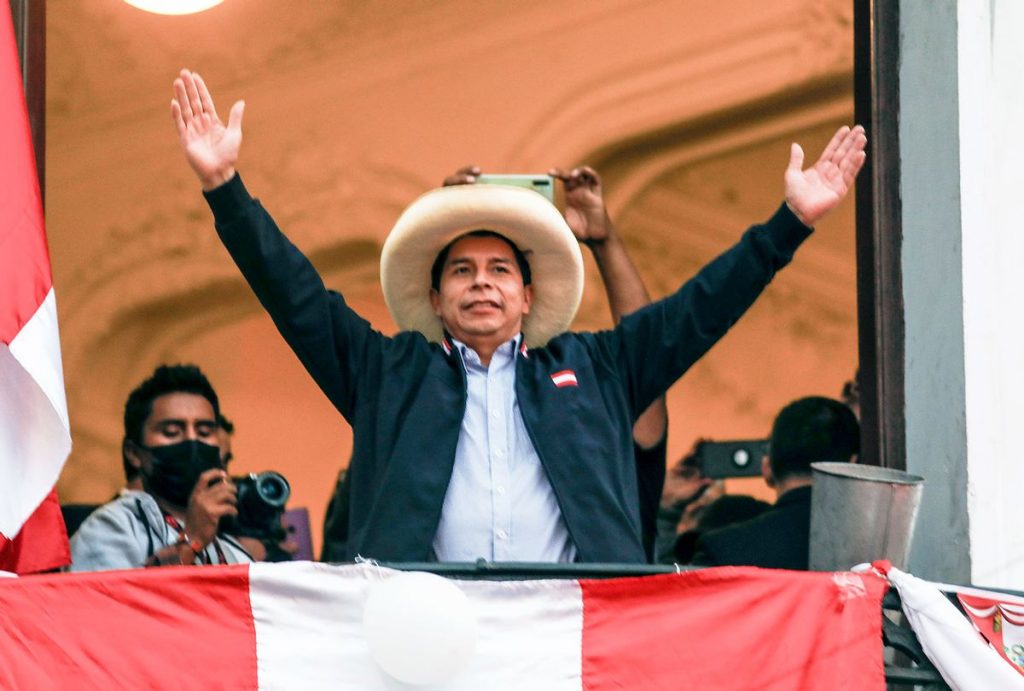With the results of Peru’s presidential election now indicating Pedro Castillo is the vote winner, one of his top economic advisors to Castillo has made clear Castillo’s views on capitalism. Pedro Francke told a radio interviewer, “I reiterate what I have already said. We are going to scrupulously respect private property. Not one soul of people’s savings will be touched. We are also going to maintain the autonomy of the Central Reserve Bank of Peru to ensure that investment in Peru does not disappear.”
Clearly, the economic priorities of an eventual Castillo government will do little to disrupt the status quo for Peru’s ruling class and the multinationals with interests in the country.
Peru’s presidential and congressional elections, which took place on the eve of the country’s bicentenary of independence, also unfolded amidst a deep health crisis that has already killed 186,757 people from Covid-19 and an economic crisis that has cost millions of people their jobs. Thousands find themselves in debt because of having to cover the expenses of relatives infected with coronavirus, thanks to Peru’s privatized health system. During the second quarter of last year, the Peruvian Institute of Economy reported that 6 million jobs were lost and that the number of Peruvians employed dropped 39.6 percent.
In light of these statistics, which show a direct effect on the working class, it’s worth mentioning that Castillo and his Perú Libre party have said nothing about canceling the mass layoffs or repealing the Peruvian policy of “perfect suspension” (which allows work furloughs without pay and with no guarantee of reinstatement), approved during the pro-employer government of Martin Vizcarra. It is the fundamental reason behind thousands of workers losing their jobs in the last year.
Instead, Castillo and his economic team, now headed by Pedro Francke, have made clear their willingness to dialogue with and reach a consensus with the business sector — the same sector that benefited from the “Reactiva Perú” financial rescue plan (a government program to ensure the liquidity of businesses during the pandemic) and that throughout the pandemic has continued to reap profits by intensifying labor precariousness and through arbitrary layoffs.
Lest there be any doubt, in the statement of Perú Libre mentioned above, a Castillo government will respect “the autonomy of the Central Reserve Bank.” A “pronouncement” tweeted by Pedro Francke states, “We reiterate that we have not considered in our economic plan nationalizations, expropriations, confiscations of savings, exchange controls, price controls, or prohibition of imports. The popular economy with markets that we advocate promotes the growth of companies and businesses, particularly agriculture and SMEs, in order to generate more jobs and better economic opportunities for all Peruvians.”
The pronouncement closes by saying that the incoming administration will “respect all Peruvian public debt commitments.” In other words, Castillo and his advisors are not even considering a renegotiation of the fraudulent public debt, let alone a halt to its payment.
We must not forget that Peru’s public debt is the main source of decapitalization of the state and the main mechanism of imperialist domination. It prevents the expansion of social spending, condemning millions of low-income people to live in deplorable conditions and without basic services such as water, sanitation, and housing. The Consensus Forecast Latin America, a study of public debt in Latin America by FocusEconomics, points out that Peru’s foreign debt equals 39.9 percent of GDP this year 2021 and will equal 38.5 percent of projected 2022 GDP — all because interest on the debt Vizcarra undertook through international organizations will have to be covered specifically to cover the bailouts to big business.
First published in Spanish on June 9 in La Izquierda Diario.
Translation: Maryam Alaniz










